Offline: Avoiding social media in an ever-connected world
High school students who don’t have any social media accounts are increasingly rare.
November 14, 2022
Some may feel juggling school, clubs, and relationships challenging when having a constant distraction in their pocket.
“When I had TikTok, I would sit there for a couple of hours at a time without realizing it. My grades actually dropped the quarter of the year I had TikTok by about a grade level per class. When I deleted it, my grades went back up because I spent more productive time studying,” said Elliot Obuch, a sophomore at ETHS. After difficulties focusing in school, he made the decision to go partially social media-free by deleting all unnecessary platforms from his phone. This freed up a surprising amount of time to focus on school work.
“People are a lot less productive and have shorter attention spans due to the easy access to short-form content,” said Obuch. He feels that if students are constantly receiving new entertainment at such a rapid rate through their devices, they will slowly become less accustomed to working on long-term projects in the classroom.
To build stronger connections in her classroom, ETHS English teacher, Elizabeth Hartley, has a strong no cell phone policy. “The worst effect cell phones have on students is that your eyes are looking down at your device while you are going through your whole life. Usually, you have earphones in so you can’t even hear or socialize. People around you will say hello and you won’t even know they are there. (Devices) check you out of the community and real social interactions more effectively than putting you in a prison cell.” Hartley says. She feels it is crucial to recreate the missing human connections that students may have lost over the pandemic.
“Last year was the worst year of my career. Mostly because I had four sections of sophomores that had been isolated for a year, and they literally moved through the halls like zombies. They didn’t know how to communicate, they didn’t know how to talk, and didn’t know to look people in the eye. I had sophomores trying to convince me that they were being social, they were just being social on their screens. They told me they didn’t want to come to school because they didn’t want to be around people, they just wanted to be in their rooms by themselves. I almost didn’t come back this year, I almost quit.” continued Hartley
“It’s not about social media per se but about conscious personal awareness and decisions. It is about how you spend your time. That’s how long you’re here (Hartley snaps her fingers), and then you’re dead and do you really want to be some atomic energy that isn’t here in the shape of a body anymore, and wishing that you’d put that thing away (you’re device)?” said Hartley. She believes that in order for students to form healthy relationships with peers, one must first be able to form healthy relationships with their devices. Taking a break from one’s phone may be an important piece to healing from the pandemic and rebuilding essential communication skills.
Evan Langan, sophomore at ETHS, has only ever used social media once, Tiktok, and then promptly deleted the app after installing. “Now that we are not in lockdown,, I have not had any trouble stopping or limiting my social media use since I did not use social media during the pandemic. Because of this I have been able to focus on the things that are important to me…Not using social media has improved my mental health by allowing me to be in the moment without worrying about posting what I am doing. I have more time to do other activities that I prefer over social media”. He now spends his extra free time investing in hobbies such as chess, reading, and spending time outside.
Even though spacing yourself from social media may have positive effects to your mental health, not having it can block you from connecting with your school and friends. It is common for one to feel a sense of FOMO (Fear Of Missing Out).
“By disconnecting from social media it is harder to keep up with news, as well as friend groups. At times I feel out of the loop, but not so much so that I download social media…I connect with others through meeting them in person, in clubs, and at extracurricular activities,” Langan says.
Still, one can not completely ignore the benefits social media provides.
Diana Balitaan, head of the Community Service Club at ETHS, spoke to us about her experiences with social media. She uses many platforms such as Instagram, Twitter, BeReal, and Facebook. Instagram especially, plays a large part in the Community Service Club. Posting on this platform allows students to be informed on upcoming events organized by the club and even allows parents to be aware of how they can participate at ETHS.
Social media allows groups like the Community Service Club to spread important information to students quickly and effectively. It also allows students to communicate with their peers. Vivian Rose, a senior at ETHS currently uses platforms like TikTok, Snapchat, and Instagram. She doesn’t put any restrictions on her screen time but is conscious to put away her phone when studying to eliminate any distractions. “I think that social media lets you stay in touch with a lot of current events… It also keeps me more in touch with trends, friends, and my family”.
Whether you choose to spend your free time scrolling or not, it is important to establish healthy relationships with your devices. Vivian shared some personal advice she has gained, “Social media is fun as long as you allow it to be. If you feel negative about yourself, taking a break from socials is healthy.”


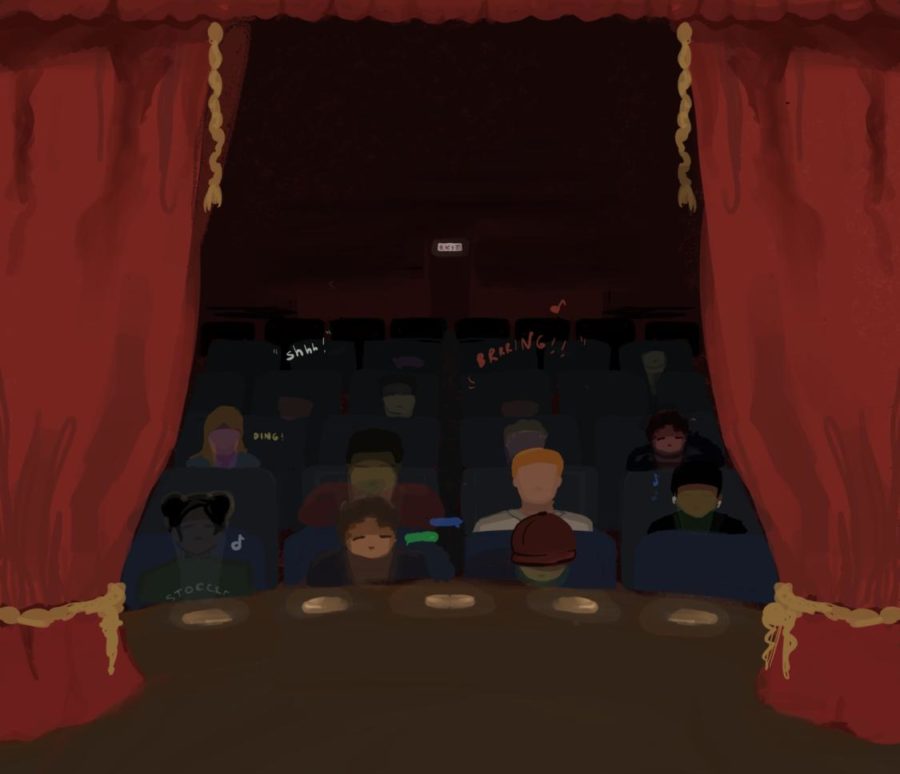
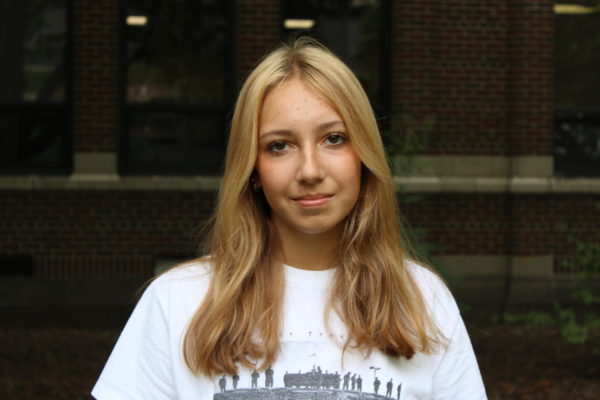

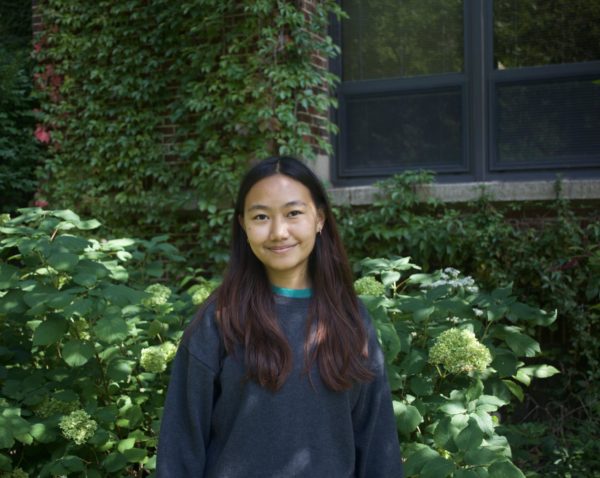










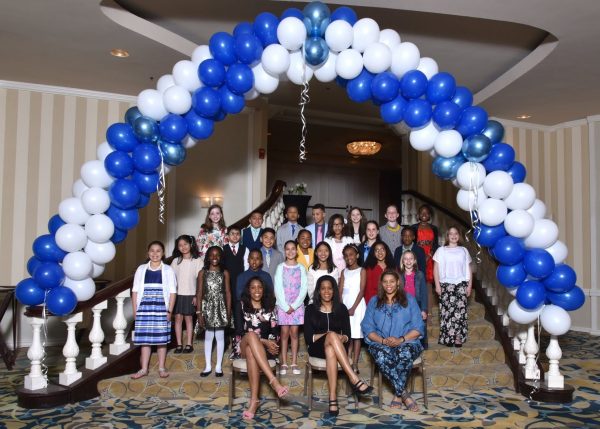




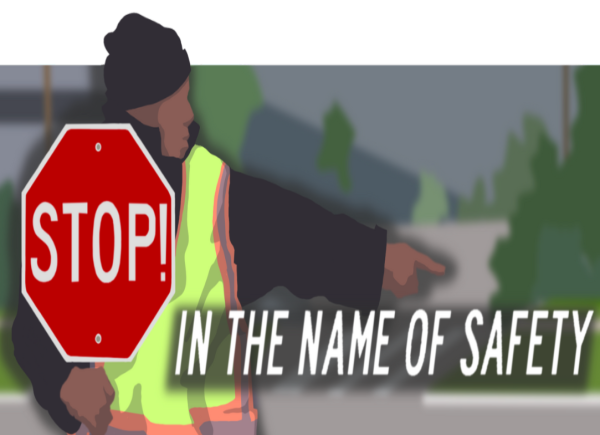
Vivien Bissell • Dec 8, 2022 at 4:37 pm
I think that Ms. Hartley might have been too critical with her judgements. Yes, keeping distractions away is important, but think about how the students might be feeling? Not just your own personal feelings. Maybe you can help them not feel so isolated, or show interest in their lives instead of criticizing them for being on screens. Adults are so often quick to judge us but are often just as much on computers and phones distracted.
vivien Bissell • Dec 8, 2022 at 4:37 pm
Great article!